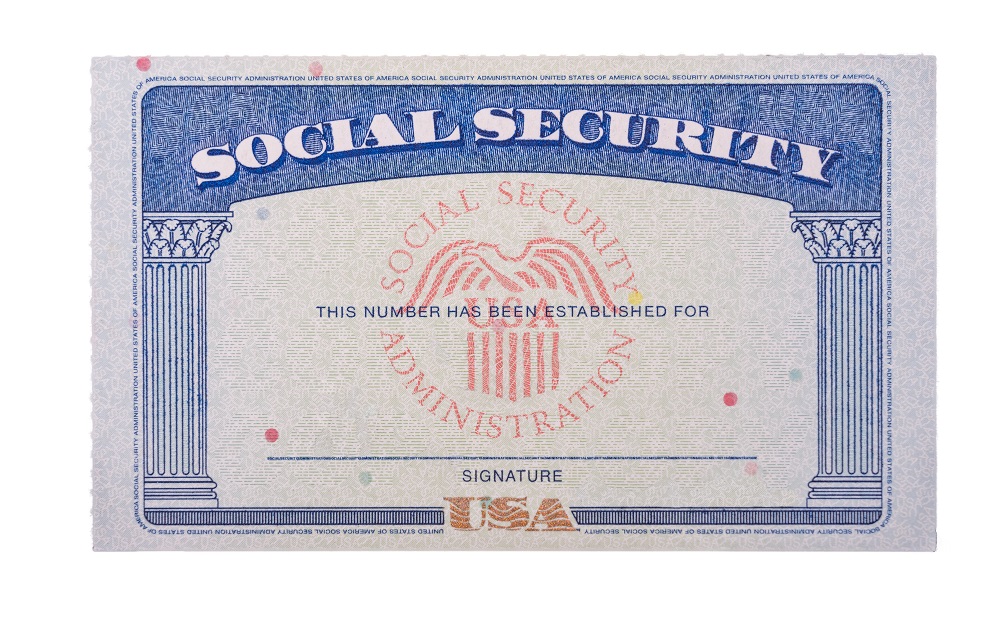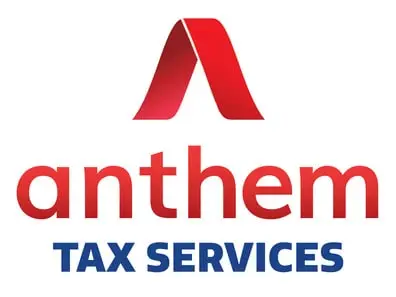
If you have underpaid your tax for some reason you might be contacted by the IRS to inform you that you have outstanding taxes to pay. This can often come as a surprise and many people don’t have sufficient financial resources to facilitate such an amount, especially if the money comes from an SSI fund.
It is not surprising or unreasonable that many people avoid paying the outstanding debt when faced with large unexpected amounts. However, this may lead to a garnishing situation in which the IRS seizes your wages to satisfy the debt owed. In many cases, this is an unfortunate and unsatisfactory outcome.
Since new legal practices were introduced the IRS has more freedom to access your wages and SSI money to satisfy a debt. They can now take up to 15% of this money. Everything you need to know about this process is outlined in the following article, including what you can do to respond to the IRS practices of wage garnishment.
ARE MY SOCIAL SECURITY BENEFITS SAFE FROM THE IRS?
You might be wondering if your SSI benefits are safe from the IRS if you have outstanding tax payments. Unfortunately, they are not. The IRS can and will access your SSI benefit money to pay down any tax you have outstanding. This wasn’t always the case but since the introduction of the Federal Payment Levy Program (FPLP), it’s become more commonplace.
According to this program, any outstanding debt you owe will be paid down by levying 15% of your SSI payments. In the past, the IRS was unable to use SSI money that fell below a sum of $750 per month – but this is no longer the case. Now, according to FPLP rules, a levy of 15% can be applied to any amount of SSI benefits received.
While this may be bad news for your SSI benefit money there is a silver lining. There are some mitigating factors that can protect your money. For one thing, if you receive your SSI money because of a disability then it may not be levied by the IRS. If your income falls below a certain level you will also be exempt.
HOW WILL I KNOW IF MY SSI IS SAFE?
Your SSI money will be safe unless you are explicitly contacted by the IRS to inform you they will start a tax levy. Before they garnish your SSI wages they will send you two written notices.
The IRS always conducts their affairs using written notices. If you receive a phone call or an email regarding your SSI payments it will be a scammer.
The letter from the IRS will outline the process for garnishing your SSI benefit money. They will tell you how much you have to pay back and the percentage they intend to levy. You will be given 30 days to respond to the notice affirmatively or to appeal if you feel you have grounds.
Following the second IRS notice, you will have 30 days to appeal the notice or to pay the tax debt owed in full, before they will begin to garnish the money.
HOW MUCH CAN THE IRS TAKE FROM SSI?
If you owe the IRS money for unpaid taxes they are entitled to levy any SSI money you receive and to satisfy the tax debt. In the past there was a limit to how much they could take – there was a bottom limit of $750 – nowadays, following the introduction of the FPLP program, they have more autonomy.
The IRS now can go after a range of funds including your SSI benefit money to satisfy any outstanding tax debts. However, they are not allowed to take any more than 15% of your SSI money and this amount is also dependent upon circumstances. If you feel the levy is unfair or your experience undue hardship, you may have grounds for appeal.
While the IRS had the authority to garnish up to 15% of your wages that doesn’t mean they will. Depending on your tax debt and present circumstances they may apply a smaller levy across a longer period.
CAN IRS GARNISH DISABILITY BENEFITS?
Some disability benefits such as those from the Department of Veterans Affairs or VA benefits are exempt from IRS levies. VA benefits are issued to veterans that are disabled while serving actively in the military. These benefits are fundamental rights for disabled veterans and necessary for survival.
Since veteran that receive VA benefits are on active duty with the military they will not receive SSI benefits. While their VA fund may be exempt from IRS levies any SSI benefits received after active duty will be eligible for IRS repayments. If your SSI benefits are directly related to your disability, however, you may be eligible for further exemption.
According to government laws, these disability benefits are exempt from IRS levies. Any tax you owe to the IRS cannot be taken from this fund. Unfortunately, however, they can access other things you might own, such as vehicles, real estate, bank accounts, and wages.
HOW CAN I STOP THE IRS GARNISHING MY SSI?
Following the 30 day period after the second written letter from the IRS, they will begin to freeze some of your wages. This usually begins with a bank freeze preventing you from accessing some of your funds. After a further 21 days, the government will begin to withdraw the money.
As previously stated the IRS may also levy your SSI money. The process works in much the same way as your SSI acts as an alternative income. This tax levy will remain in place until the debt is paid off, however, it can make life difficult to live on a very low income.
To avoid these levies you need to investigate any exemptions you may have and appeals you can make. Each state is different and may apply different rules. Access a tax professional or a lawyer for advice – you need someone knowledgeable about the tax loophole to look after your best interests.
NEXT STEPS
If you are senior citizen in need of tax debt relief or facing any type of garnishment, please contact us today by phone or email. It is never a good idea to approach complex financial decisions without sound advice from a team who understands the choices you’re weighing therefore we are here to assist you when it comes to tax debt relief and keeping the IRS out of your life.

Blank and empty unfilled USA social security card isolated against a white background
If you have underpaid your tax for some reason you might be contacted by the IRS to inform you that you have outstanding taxes to pay. This can often come as a surprise and many people don’t have sufficient financial resources to facilitate such an amount, especially if the money comes from an SSI fund.
It is not surprising or unreasonable that many people avoid paying the outstanding debt when faced with large unexpected amounts. However, this may lead to a garnishing situation in which the IRS seizes your wages to satisfy the debt owed. In many cases, this is an unfortunate and unsatisfactory outcome.
Since new legal practices were introduced the IRS has more freedom to access your wages and SSI money to satisfy a debt. They can now take up to 15% of this money. Everything you need to know about this process is outlined in the following article, including what you can do to respond to the IRS practices of wage garnishment.
ARE MY SOCIAL SECURITY BENEFITS SAFE FROM THE IRS?
You might be wondering if your SSI benefits are safe from the IRS if you have outstanding tax payments. Unfortunately, they are not. The IRS can and will access your SSI benefit money to pay down any tax you have outstanding. This wasn’t always the case but since the introduction of the Federal Payment Levy Program (FPLP), it’s become more commonplace.
According to this program, any outstanding debt you owe will be paid down by levying 15% of your SSI payments. In the past, the IRS was unable to use SSI money that fell below a sum of $750 per month – but this is no longer the case. Now, according to FPLP rules, a levy of 15% can be applied to any amount of SSI benefits received.
While this may be bad news for your SSI benefit money there is a silver lining. There are some mitigating factors that can protect your money. For one thing, if you receive your SSI money because of a disability then it may not be levied by the IRS. If your income falls below a certain level you will also be exempt.
HOW WILL I KNOW IF MY SSI IS SAFE?
Your SSI money will be safe unless you are explicitly contacted by the IRS to inform you they will start a tax levy. Before they garnish your SSI wages they will send you two written notices.
The IRS always conducts their affairs using written notices. If you receive a phone call or an email regarding your SSI payments it will be a scammer.
The letter from the IRS will outline the process for garnishing your SSI benefit money. They will tell you how much you have to pay back and the percentage they intend to levy. You will be given 30 days to respond to the notice affirmatively or to appeal if you feel you have grounds.
Following the second IRS notice, you will have 30 days to appeal the notice or to pay the tax debt owed in full, before they will begin to garnish the money.
HOW MUCH CAN THE IRS TAKE FROM SSI?
If you owe the IRS money for unpaid taxes they are entitled to levy any SSI money you receive and to satisfy the tax debt. In the past there was a limit to how much they could take – there was a bottom limit of $750 – nowadays, following the introduction of the FPLP program, they have more autonomy.
The IRS now can go after a range of funds including your SSI benefit money to satisfy any outstanding tax debts. However, they are not allowed to take any more than 15% of your SSI money and this amount is also dependent upon circumstances. If you feel the levy is unfair or your experience undue hardship, you may have grounds for appeal.
While the IRS had the authority to garnish up to 15% of your wages that doesn’t mean they will. Depending on your tax debt and present circumstances they may apply a smaller levy across a longer period.
CAN IRS GARNISH DISABILITY BENEFITS?
Some disability benefits such as those from the Department of Veterans Affairs or VA benefits are exempt from IRS levies. VA benefits are issued to veterans that are disabled while serving actively in the military. These benefits are fundamental rights for disabled veterans and necessary for survival.
Since veteran that receive VA benefits are on active duty with the military they will not receive SSI benefits. While their VA fund may be exempt from IRS levies any SSI benefits received after active duty will be eligible for IRS repayments. If your SSI benefits are directly related to your disability, however, you may be eligible for further exemption.
According to government laws, these disability benefits are exempt from IRS levies. Any tax you owe to the IRS cannot be taken from this fund. Unfortunately, however, they can access other things you might own, such as vehicles, real estate, bank accounts, and wages.
HOW CAN I STOP THE IRS GARNISHING MY SSI?
Following the 30 day period after the second written letter from the IRS, they will begin to freeze some of your wages. This usually begins with a bank freeze preventing you from accessing some of your funds. After a further 21 days, the government will begin to withdraw the money.
As previously stated the IRS may also levy your SSI money. The process works in much the same way as your SSI acts as an alternative income. This tax levy will remain in place until the debt is paid off, however, it can make life difficult to live on a very low income.
To avoid these levies you need to investigate any exemptions you may have and appeals you can make. Each state is different and may apply different rules. Access a tax professional or a lawyer for advice – you need someone knowledgeable about the tax loophole to look after your best interests.
NEXT STEPS
If you are senior citizen in need of tax debt relief or facing any type of garnishment, please contact us today by phone or email. It is never a good idea to approach complex financial decisions without sound advice from a team who understands the choices you’re weighing therefore we are here to assist you when it comes to tax debt relief and keeping the IRS out of your life.

